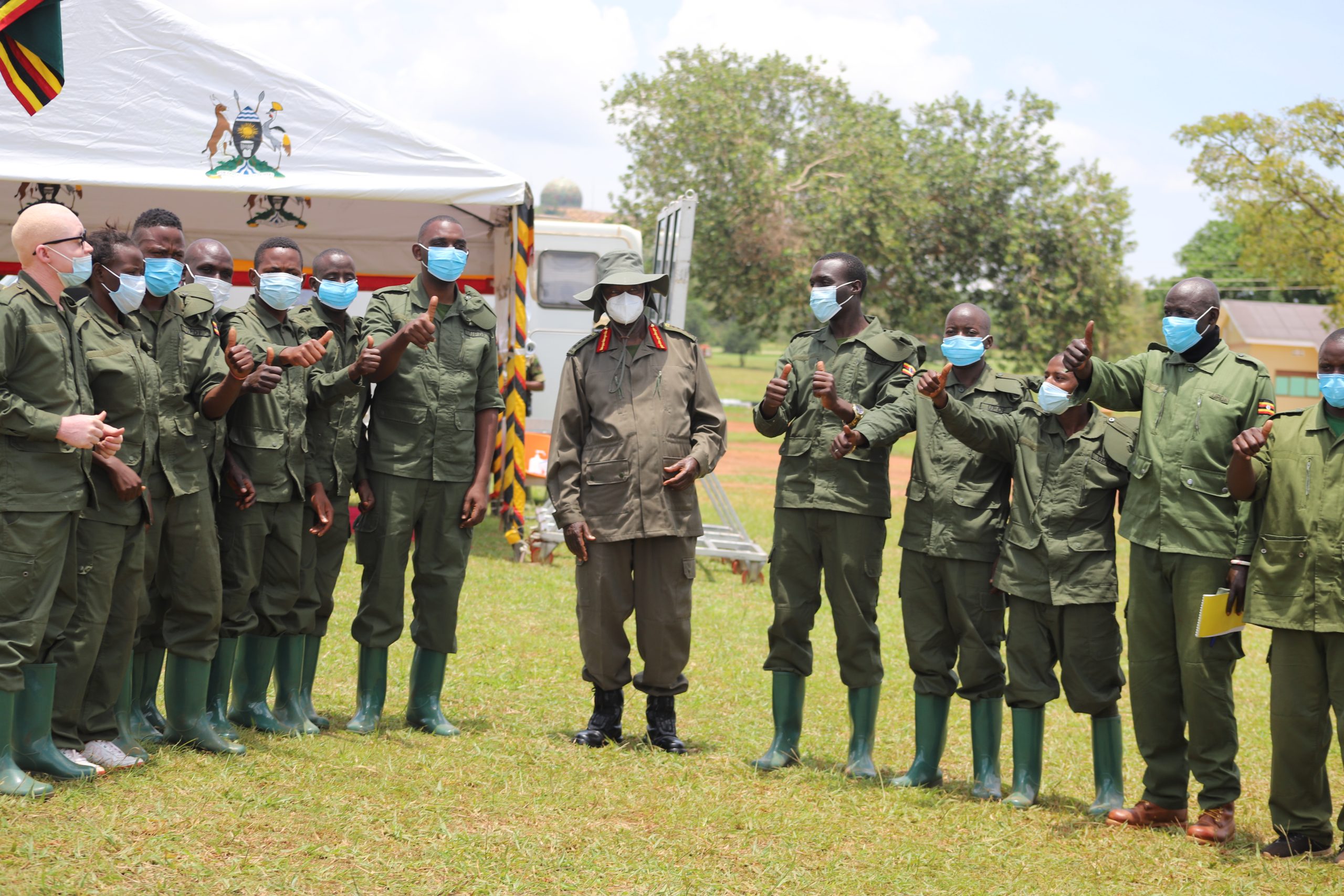By: Ismael Kasooha
Kyankwanzi
President Yoweri Museveni has asked leaders in the country to adopt the mass-line approach while dealing with issues of socio-economic transformation.
“What I want to ask you is to adopt the mass-line where you work for everybody. Our ideology is that everyone can change and it is possible if the leaders learn and are ideologically oriented,” said Museveni.
President Museveni said that right from the 1960s as student leaders, they believed in changing all people (Massline) and that is why he managed to change the way of life of the cattle keepers from nomadism to modern cattle keeping methods.
He said that their difference with other parties like Democratic Party (DP), Uganda People’s Congress (UPC) and Kabaka Yekka (KY) was on purpose of politics and his group believed in solving the problems of all people not identity.
The President said that these political parties were formed on identity and not on ideology because UPC was mainly for protestants and some few Muslims, Democratic Party was for the Catholics while Kabaka Yekka was for Baganda and some few Muslims and this was the beginning of Uganda’s problems.
“The main purpose of politics is identifying people’s problems and getting solutions for those that are solvable,” noted Museveni. Adding that the purpose of politics is prosperity for all not identity. For me to get from home to come and contest is because I have the capacity to address the issues affecting the people. But to come to politics because you want a job, it’s very dangerous and that is where the problem starts.” he said.
The President said they begun with security and ensured there was security for everybody. And nobody should disturb any Ugandan. He castigated the elite who take advantage of the poor to grab their land.
“We did this by first disciplining the army and it has improved but there is a gap in your area. We disciplined the army, the police but there is a gap on justice for all like on land matters. Grabbing people’s land and the victims are the people who are not educated and the ones who steal are the educated. You, the leaders say, let them go and fight in court. What you are saying is like heavy weight should wrestle with light weight. That is why you find a lot of anger among the people,” Museveni noted.
He said that justice for all is not functioning well in the community which should be addressed.
The President however noted that if leaders understand the objective of politics most of the challenges in the community would be solved.
Museveni said that immunization for all has seen the population of Uganda increase from 14 million in 1986 to 46 million currently. He says that the people must be sensitized on good nutrition, hygiene and where possible the local leaders can even pass bylaws to enforce this.
He further expressed concern on government drugs being stolen from health facilities and noted that there was need for health for all.
For 14 days, local leaders from 10 districts converged at the National Leadership Institute (NALI) in Kyankwanzi District and Oliver Reginald Tambo School of Leadership and Pan African center of excellence Kaweweta in Nakaseke District for ideological leadership transformational training.
The ten districts included Kiboga, Masaka, Yumbe, Kibuku, Kibaale, Nakasongola, Gomba, Mbarara, Kalungu and Mbarara City.
The President presided over the passing out of the cadres at NALI in Kyankwanzi District.
Museveni said that leaders must strive to have all people embrace government programmes such as education, health for all and prosperity for all.
He re-echoed his call for non-payment of school fees in government aided schools saying that charges are the leading cause of school dropouts in the country.
He says that Primary schools’ enrollment is at 11 million but those that are in secondary are only 2 million implying that 9 million children drop out of school and attributed this to school charges.
Museveni said that government has constructed schools, disburses capitation grants and pays teachers’ salaries and now the parents have the responsibility of ensuring their children have food while at school.
The Prime Minister Robinah Nabbanja said that during her nationwide working visits she established that there were some gaps in monitoring government programmes which prompted her to organize such leadership transformational trainings.
Ministers and Members of parliament lauded the government for such an initiative that empowers the local leaders to perform their roles.
The training was run under the theme “Enhancing Leaders’ Capacities in monitoring government Programmes to improve service delivery” and was organized by the Office of the Prime Minister in conjunction with Ministry of Local Government and Patriotism Secretariat.
End





